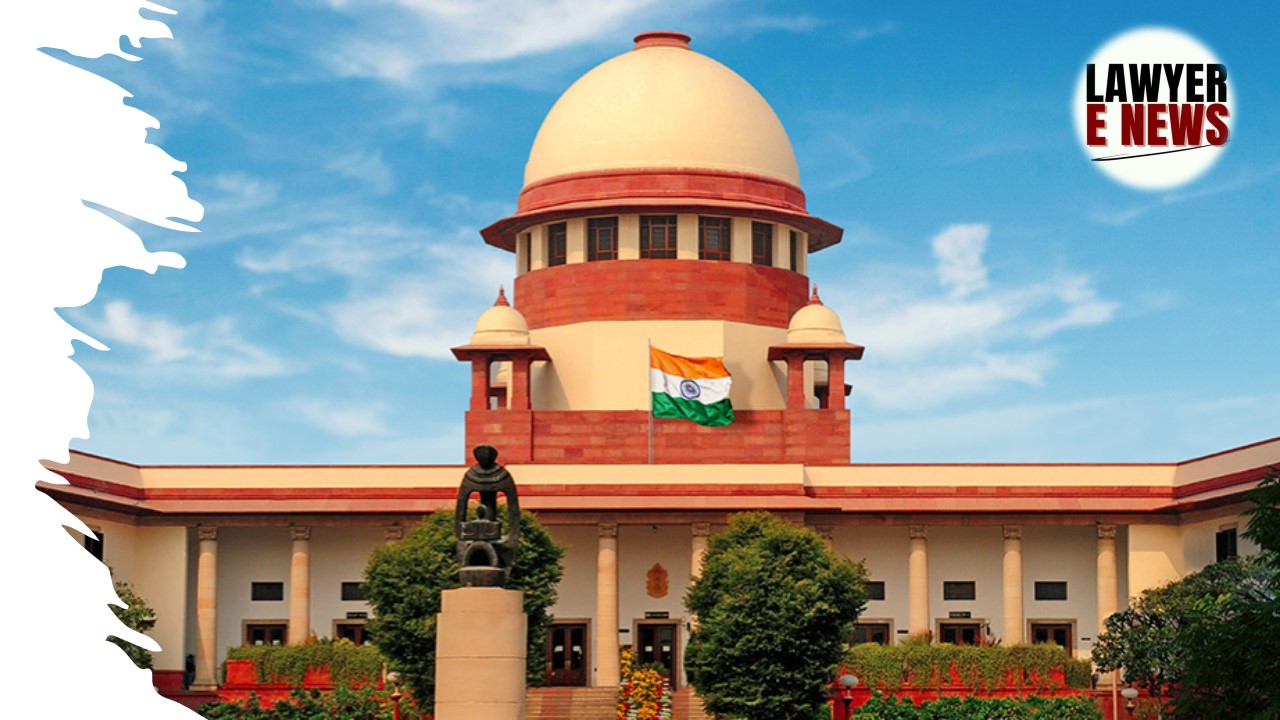-
by Admin
16 February 2026 1:47 PM



The Supreme Court of India set aside the conviction of Nandkumar Babulal Soni, a jeweller accused of receiving stolen property in connection with a ₹6.7 crore fraudulent telegraphic transfer (TT) scam at Vijaya Bank, Nasik Branch. The Court directed that the 205 gold bars seized from him be returned, holding that the prosecution failed to prove beyond reasonable doubt that the gold was linked to the fraudulent transactions.
"The distance between 'may' and 'must' is vast, and the prosecution has failed to bridge that gap," the Court observed, reinforcing the principle that mere suspicion cannot lead to conviction.
Vijaya Bank TT Scam: A Multi-Crore Fraud Using Fake Remittances
The case dates back to 1997, when a fraudulent remittance of ₹6.7 crore was orchestrated through bogus telegraphic transfers (TTs) at Vijaya Bank’s Nasik Branch. The funds were credited to an account opened under the name of M/s. Globe International, a fictitious firm, using forged documents.
Following the fraudulent deposits, large sums were withdrawn in cash and through demand drafts. Several of these demand drafts, amounting to ₹2.59 crore, were used to purchase gold bars from jewellers. The CBI alleged that the gold bars were received by Nandkumar Babulal Soni, linking him to the conspiracy.
"A fraud of this magnitude could not have taken place without internal complicity," the prosecution argued. However, as the case progressed, it became clear that critical links in the chain of evidence were missing.
“Prosecution Has Failed to Establish the Identity of the Stolen Gold” – Supreme Court
At the heart of the case was the ownership of the 205 gold bars seized from Nandkumar Babulal Soni. The CBI contended that these bars were purchased using fraudulent funds, while Soni maintained that they were lawfully acquired.
The Trial Court convicted Soni under Sections 120B (Criminal Conspiracy) and 411 (Dishonestly Receiving Stolen Property) of the IPC, ruling that he had knowingly received stolen property. However, it ordered the return of the gold bars, citing lack of direct evidence linking them to the fraud.
The Bombay High Court upheld Soni’s conviction but reversed the order returning the gold, instead confiscating them in favor of the State. The High Court reasoned: "Since the accused has failed to prove lawful acquisition of the gold bars, they cannot be returned to him."
The Supreme Court disagreed, holding that the burden of proof was wrongly shifted onto the accused.
"In a criminal trial, the prosecution must prove its case beyond all reasonable doubt. The accused is not required to prove his innocence—he is only required to defend himself against a legally sustainable case," the Court observed.
"Mere Possession Does Not Imply Guilt" – Court Rejects High Court’s Reasoning
A crucial aspect of the case was the identification of the gold bars. The CBI’s own witnesses admitted that they could not confirm whether the seized gold was the same as the gold purchased using fraudulent demand drafts.
The Trial Court itself noted this gap, stating: "The prosecution has failed to prove that the gold bars seized from the accused were the same bars sold by M/s. Chenaji Narsinghji to M/s. Globe International. The possibility of mistaken identity cannot be ruled out."
Despite this, both the Trial Court and the High Court convicted Soni on the presumption that he was in possession of stolen property. The Supreme Court rejected this approach, stating:
"The distance between ‘may’ and ‘must’ is vast. A conviction cannot be sustained on mere probabilities. The prosecution must prove its case to the hilt."
CBI’s Case Undermined by Its Own Failures
Another major weakness in the prosecution’s case was the acquittal of the bank officials who had allegedly facilitated the fraud.
The Trial Court convicted two Vijaya Bank officials, holding them responsible for allowing fraudulent remittances. However, the High Court overturned their convictions, citing lack of evidence. Significantly, the CBI did not challenge their acquittal, leading the Supreme Court to observe: "If the very persons accused of executing the fraud have been acquitted, how can the case against Soni stand?"
Moreover, the CBI took four years to seize the gold, raising serious doubts about the chain of custody and evidentiary value of the seized property.
"Delay in seizure weakens the prosecution’s case and creates the possibility of mistaken identification," the Court noted.
Final Verdict: Supreme Court Acquits Soni, Orders Gold to Be Returned
In its final ruling, the Supreme Court allowed Soni’s appeal and set aside his conviction, stating: "The prosecution has failed to establish that the seized gold bars were the proceeds of crime. The accused cannot be convicted merely because he was found in possession of gold. Suspicion, however strong, cannot take the place of proof beyond reasonable doubt."
Accordingly, the Court ordered the return of the 205 gold bars to Soni, while dismissing the claims of Vijaya Bank and the State over the property.
The Court clarified that while its findings applied strictly to the criminal case, other civil remedies, if available, could still be pursued by the parties.
A Judgment That Reinforces Fundamental Principles of Criminal Law
The Supreme Court’s ruling in this case reinforces the foundational principle that the prosecution bears the burden of proof in criminal cases. By rejecting presumptions of guilt and reaffirming the requirement for concrete evidence, the judgment sets a critical precedent for cases involving circumstantial evidence and financial fraud.
"In criminal jurisprudence, the guilt of an accused must be proved beyond all reasonable doubt. Courts must remain vigilant against convictions based on suspicion and conjecture," the Supreme Court concluded.
With this verdict, 205 gold bars worth crores will be returned to Nandkumar Babulal Soni, marking the end of a 27-year legal battle that began with a multi-crore bank fraud but ended with serious doubts over the prosecution’s case.
Date of Decision: 25 February 2025
